Baltic States. Explore the complex historical and geopolitical context of the Baltic States—Estonia, Latvia, and Lithuania. This article delves into their struggles for independence amidst foreign occupations.
The implications of current geopolitical tensions with Russia, and the enduring spirit of resilience among the Baltic peoples.
Baltic States and Their Struggles.
The Baltic States—comprising Estonia, Latvia, and Lithuania—have a complex history shaped by external powers and their own aspirations for independence and sovereignty.
During the tumultuous period of World War II, these nations faced significant trials, first experiencing Soviet occupation in 1940, followed by Nazi German control from 1941 to 1944, and finally suffering a second wave of Soviet domination until the early 1990s.
Each of these occupations left deep scars on the national identities and social fabrics of the Baltic peoples. The geopolitical significance of the Baltic States has long attracted the attention of global powers, particularly during the Cold War.
Presidents Franklin D. Roosevelt and Dwight D. Eisenhower were pivotal figures in shaping U.S. foreign policy regarding these nations.
At the Yalta Conference in 1945, Roosevelt’s decisions effectively sacrificed the Baltic States to Soviet influence, a move that would have lasting consequences.
Despite a strong commitment from the Baltic nations to preserve their independence, their voices were largely overshadowed by the broader strategic goals of larger powers.
Eisenhower’s presidency continued this trend, as the Baltic aspirations remained unfulfilled amid the complex international dynamics of the post-war era. The promises made to the Baltic States during these pivotal moments in history underscore their struggle for recognition, security, and sovereignty.
The legacy of betrayal has fostered a sense of resilience among the Baltic peoples as they navigated decades of oppression.
This historical narrative is crucial in understanding contemporary tensions surrounding their security, especially in light of shifting geopolitical landscapes and the enduring influence of Russia in the region.
The struggles of Estonia, Latvia, and Lithuania reflect not merely their past, but also the ongoing quest for autonomy and recognition in the face of challenges that resonate to this day.
The Current Geopolitical Climate- Rumors and Realities.
The geopolitical landscape in Eastern Europe has entered a precarious phase, shaped by an array of rumors and speculations regarding U.S. President Donald Trump’s potential negotiations with Russian President Vladimir Putin over Ukrainian sovereignty.
These discussions pose significant implications for the balance of power in the region, creating a ripple effect of uncertainty and anxiety throughout the Baltic States.
The delicate relationship between the United States and Russia is under scrutiny, leading many to question the future of U.S. foreign policy in Eastern Europe.
The Baltic nations—Estonia, Latvia, and Lithuania—are particularly sensitive to developments in Ukraine and the broader sentiment toward Russia. Historically, these countries have experienced betrayal and aggression from larger powers, instilling a keen awareness of the need for vigilance in international relations.
As rumors circulate about a potential thaw in relations between Washington and Moscow, Baltic leaders express apprehension, recognizing that such negotiations could undermine their security.
The implications of being left without adequate support from their Western allies fuels concerns about potential concessions that might embolden Russian interests in the region.
The implications of these potential negotiations extend beyond mere diplomatic discussions. Should the U.S. pursue a policy of rapprochement with Russia that does not prioritize the Baltic States’ security concerns, there may be a reevaluation of alliances among Eastern European nations.
The fragility of regional stability is underscored by the historical context of manipulation by dominant powers.
States in the Baltic region are monitoring these developments closely, as the stakes are high regarding their sovereignty and territorial integrity in the face of assertive Russian posturing.
In conclusion, the geopolitical climate surrounding U.S.-Russia relations presents a complicated challenge for the Baltic States.
As rumors of negotiations circulate, the resulting climate of uncertainty underpins the need for vigilant and proactive measures in ensuring their national security and democratic integrity.
The Spirit of Resilience!
Baltic Defiance and Independence.
The Baltic States—comprising Estonia, Latvia, and Lithuania—exemplify a remarkable spirit of resilience in the face of historical adversities and betrayals.
Each nation has experienced a unique yet interconnected journey toward independence, marked by their relentless determination to assert sovereignty against external pressures.
Following centuries of varying degrees of foreign domination, the 20th century proved particularly tumultuous as the Baltic nations navigated the complexities of both World Wars and the imposed Soviet regime.
Their struggle for autonomy is not merely a tale of past hardships, but a testament to their enduring commitment to democratic values and human rights. The rejuvenation of national identity during the late 20th century was catalyzed by a profound sense of unity among the Baltic peoples.
The Baltic Way!
The mass gatherings, known as the Baltic Way, illustrated a collective resolve that galvanized support for independence across these nations.
Even in the face of potential external aggression, this spirit of defiance remains pivotal in shaping their geopolitical strategies. As members of the European Union and NATO, the Baltic States have actively engaged in fostering collaborative security mechanisms that emphasize mutual defense and regional stability.
This alliance enhances their security framework, reflecting the resilience and adaptability of their democratic institutions.
Moreover, the ongoing commitment to uphold democratic principles while navigating contemporary challenges, such as cyber threats and disinformation campaigns, further showcases their unwavering stance.
The Baltic nations, despite historical betrayals, have established a robust political culture rooted in transparency and civic participation.
This steadfast dedication not only fortifies their national identities but also promotes regional unity among like-minded allies.
Ultimately, the resilience demonstrated by the Baltic States encapsulates a broader narrative about the importance of defending democratic values in an increasingly complex global landscape.
Looking Forward!
Safeguarding the Future of Ukraine and the Baltics.
As the geopolitical landscape continues to evolve, the future of Ukraine and the Baltic States hinges on their ability to forge strong alliances and foster international support.
The ongoing tensions in Eastern Europe serve as a reminder of the vulnerabilities faced by nations that have historically endured betrayals.
Therefore, it is crucial for both Ukraine and the Baltics to proactively engage with allies, strengthening their democratic institutions while navigating complex political dynamics.
International partnerships, particularly with organizations such as NATO and the European Union, are instrumental in fortifying the collective security of these nations.
The Baltic States have demonstrated resilience by investing in defense and cybersecurity, which enhances their capacity to deter potential aggression. Similarly, Ukraine’s commitment to democratic reforms and military modernization seeks to create a more robust defense against external threats.
By prioritizing cooperation and shared values, these nations can build a united front against authoritarian influences.
The importance of historical context cannot be overstated.
The lessons gleaned from past betrayals must inform contemporary strategies, ensuring that the sovereignty and independence of the Baltic States and Ukraine remain safeguarded.
This involves not only diplomatic endeavors but also societal engagement that fosters a sense of community and common purpose.
Education on historical events, alongside the promotion of cultural initiatives, can help cultivate a collective identity rooted in resilience and commitment to democracy.
Looking ahead, the interplay between internal governance and international relations will play a pivotal role in shaping the trajectory of Ukraine and the Baltic States.
By fostering a spirit of solidarity among democracies, these nations can stand firmly against authoritarian threats, ensuring the preservation of freedom for future generations.
The commitment to maintaining open channels of communication and collaboration among allies will reinforce the resilience needed to navigate the challenges that lie ahead.
Have Good Day!

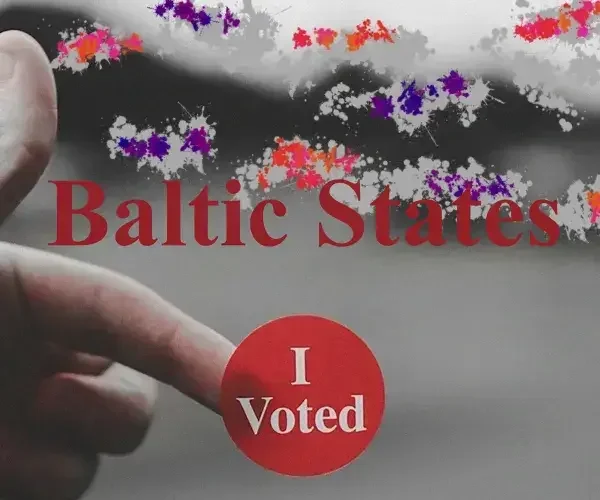
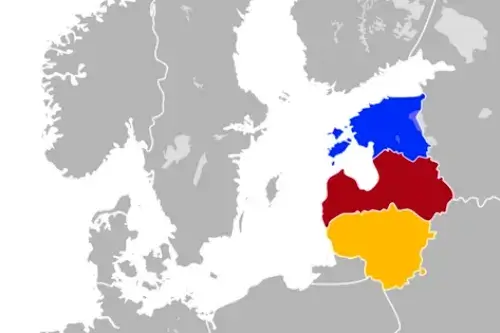

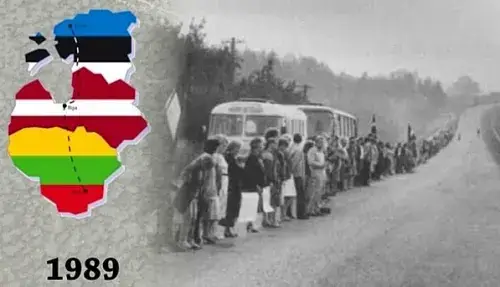
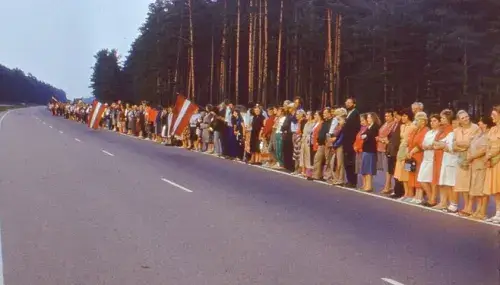

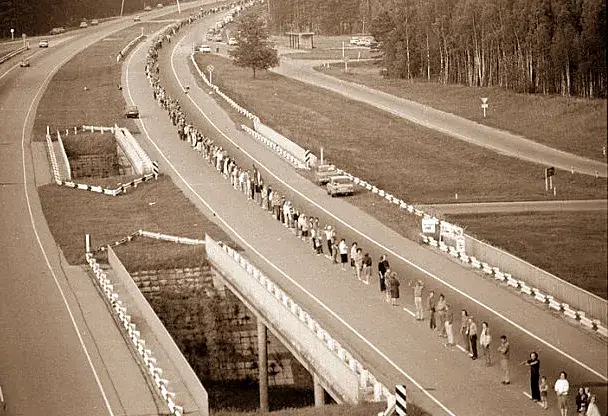
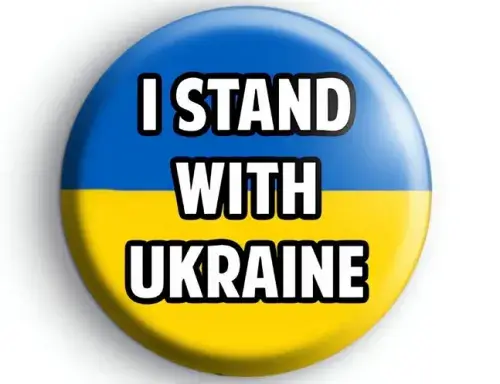

Fact! The Baltic nations, despite historical betrayals, have established a robust political culture rooted in transparency and civic participation.
The struggles of Estonia, Latvia, and Lithuania reflect not merely their past, but also the ongoing quest for autonomy and recognition in the face of challenges that resonate to this day.
Condemnation, classic shamelessness! US President Donald Trump’s special envoy for Ukraine and Russia, Keith Kellogg, has stated that he sees no opportunity for European countries to participate in peace talks.
Бережи ГОСПОДИ УСІХ ЛЮДЯНИХ ЛЮДЕЙ! МАТІНКО БОЖА, ПОМОЖИ АВТОРАМ ДОНЕСТИ ТЯЖКУ ПРАВДУ ДО збайдужілих на планеті .
Trump just gave Putin what he wants in Ukraine and thinks he can negotiate on behalf of Ukraine with a dictator and war criminal. His minions will be at the Munich Security Conference, a hitherto respected forum for international security and defense experts and world leaders.
Now it will be turned into a repeat of Munich 1938, where a European country (then Czechoslovakia) was cut up to appease a dictator. In 2025, it will be Ukraine.
Perhaps some of you agree with JD Vance that Ukraine means nothing. But if Putin gets his way with Ukraine, guess who will be next – the Baltics and your ancestral homeland!
Those of you who have relatives here in Riga or spend the summer in an apartment purchased thanks to Trump’s game with his buddy Vladimir Putin, you will likely see your relatives fleeing the borders of Fortress America (no immigrants please) and your Riga real estate damaged in a potential NATO war against a resurgent Russia sometime in the late 2020s.
In return for your vote for Trump, on the domestic political level, you will see “don’t say gay” become the law of many states (now that there will be no Department of Education and its guidelines), forced births and shaming of women, race relations relegated to the 1950s, and your sons and daughters going to war against Panama or, perhaps, meeting token resistance from the Danish army in an attempt to occupy the territory of the NATO ally protectorate of Greenland.
Sure, Biden was removed from the ballot far too late, and Kamala never quite attacked the dogged stance against Trump, but you who support Trump share responsibility for the insane global and domestic shitshow that has begun!
Trump feels much more comfortable among Putin, Orbán, and the like than in the G-7 club. Some kind of unprecedented chaos is forming.